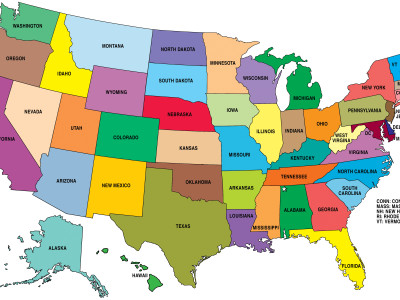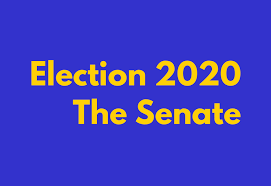Supreme Court
Is Saving Lives Unconstitutional? A Response to John Yoo
Takings law is complicated, but the answer to this question is clear. The answer is no.
Like others on the extreme right, the Hoover Institution is campaigning against “stay at home” orders because they cost too much money. Regrettably, the most recent argument to this effect on their website is by my colleague John Yoo. He argues that the Constitution requires states to compensate business owners for their losses. That’s simply …
Continue reading “Is Saving Lives Unconstitutional? A Response to John Yoo”
CONTINUE READINGFederalism and the Pandemic
For statutory, practical, and constitutional reasons, states are on the front line.
The states have been out in front in dealing with the coronavirus. Apart from Trump’s tardy response to the crisis, there are reasons for this, involving limits on Trump’s authority, practicalities, and constitutional rulings. Statutory limits. As I discussed in a previous post, the President’s power to deal with an epidemic is mostly derived from …
Continue reading “Federalism and the Pandemic”
CONTINUE READINGFrom the Grand Canyon to Contaminated Cantaloupes – and More
Five books with fresh perspectives on environmental issues.
Law reviews make little effort to track new books, unlike other journals in other disciplines . So it’s pretty much hit-or-miss whether you learn about relevant new books. I wanted to share some interesting finds that have crossed my desk, joined a growing pile of unread books, and then slowly left the pile. The subjects …
Continue reading “From the Grand Canyon to Contaminated Cantaloupes – and More”
CONTINUE READINGElection 2020: The Battle for the Senate
Whatever happens to the White House, control of the Senate will be crucial.
It’s natural that the Presidential election has soaked up all the attention. But control of the Senate may be equally important — some might say even more important. If a Democrat wins in 2020, there will be little or no chance of passing significant legislation without control of Congress. It seems very likely that the …
Continue reading “Election 2020: The Battle for the Senate”
CONTINUE READINGDeciding a Climate Case in the Shadow of the Supreme Court
Juliana Judges Surely Had The Higher Court in Mind in Drafting Their Decision
The irony of the Ninth Circuit decision dismissing the Juliana v. United States case this week is plain to see. Two branches of government — the legislative and executive – have failed to act to address an environmental problem that may cause the destruction of the federal government itself. The third branch, the judiciary, recognizes the …
Continue reading “Deciding a Climate Case in the Shadow of the Supreme Court”
CONTINUE READINGThreat Assessment: The Supreme Court & the Environment
The current bench is tilted against environmental regulation. It could get worse.
In September, Take Back the Court issued a study entitled, “The Roberts Court Would Likely Strike Down Climate Change Legislation.” In my view, that’s too alarmist. But the current conservative majority definitely will be an obstacle to aggressive use of government regulation. That could hold true well into the 2030s, depending on who leaves the …
Continue reading “Threat Assessment: The Supreme Court & the Environment”
CONTINUE READINGJust in From the Supreme Court
The Court refused to hear two cases, but with noteworthy separate opinions.
The Supreme Court declined to hear two cases today. Neither case was earthshaking, but conservative Justices wrote revealing separate opinions. The case with the greatest import for environmental law was Paul v. U.S. The facts of the case had nothing to do with environmental law, but the issue involved has large implications for environmental statutes. …
Continue reading “Just in From the Supreme Court”
CONTINUE READINGHolmes, Brandeis, and the ‘Great Ponds’ Debate
Some issues are perennial, like property rights v. public rights in water.
I suppose most of you, like me, have never heard of the Watuppa Ponds. But in 1888, a battle broke out over the legality of their use to supply drinking water for a nearby city. The issue closely divided Massachusetts’s highest court, and led to a heated debate in the recently launched Harvard Law Review …
Continue reading “Holmes, Brandeis, and the ‘Great Ponds’ Debate”
CONTINUE READING2020 in the Courts: A Preview
Some major new cases will be filed; older ones will result in major decisions.
There are going to be some significant environmental cases over the next year. In addition, some important new cases will be filed now or in the near future, which may have produced some interesting rulings. It will probably take more than a year, however, for some of the big new cases down the turnpike to …
Continue reading “2020 in the Courts: A Preview”
CONTINUE READINGThe Pro-Environmental Lochner Court
How a conservative Court defended environmental protection a century ago.
Like today’s Court, the Supreme Court a century ago was dominated by conservatives. The Lochner era, from around 1900 to 1935, was named after the most notorious case of that period. The Lochner case, which struck down a maximum hours law for workers, epitomized the conservative Supreme Court of that era. Yet that conservative Court …
Continue reading “The Pro-Environmental Lochner Court”
CONTINUE READING









